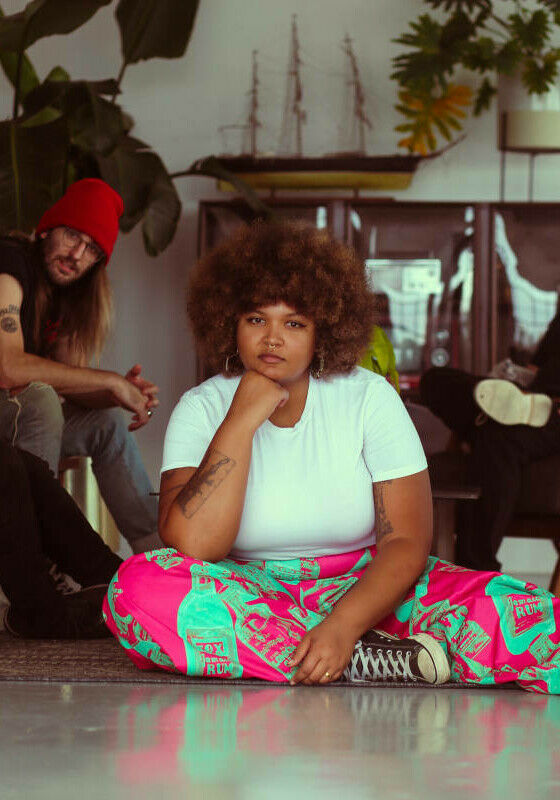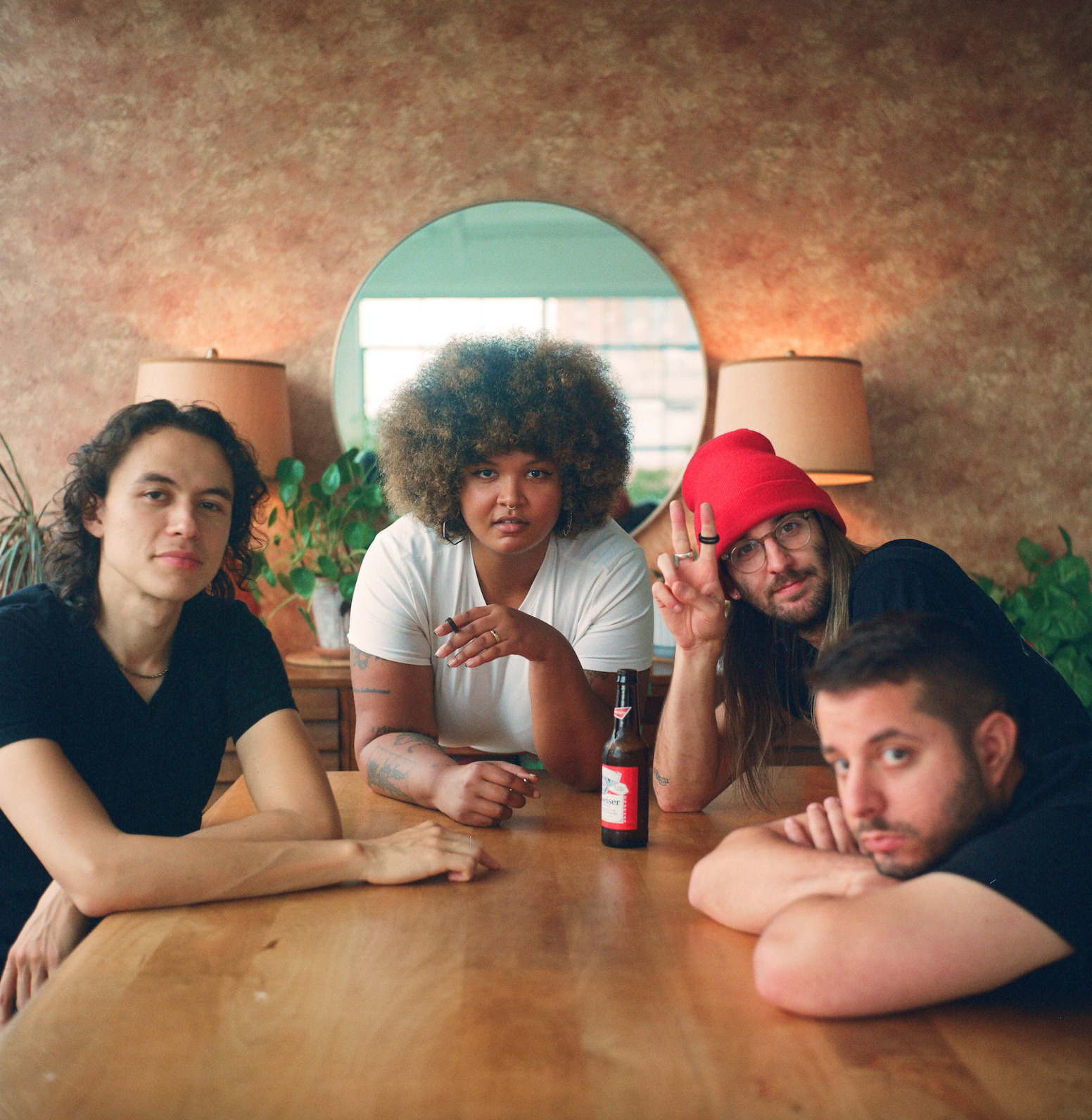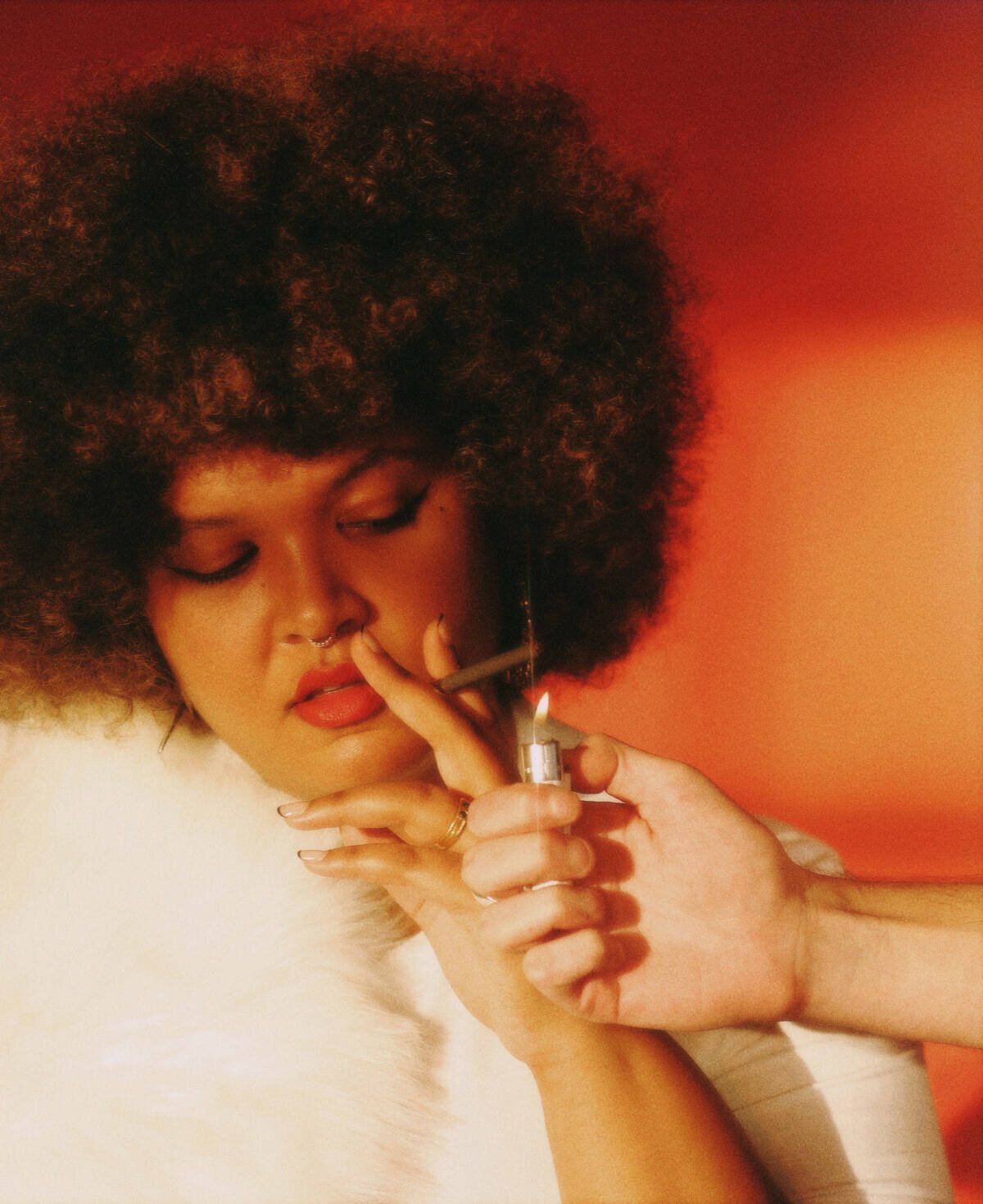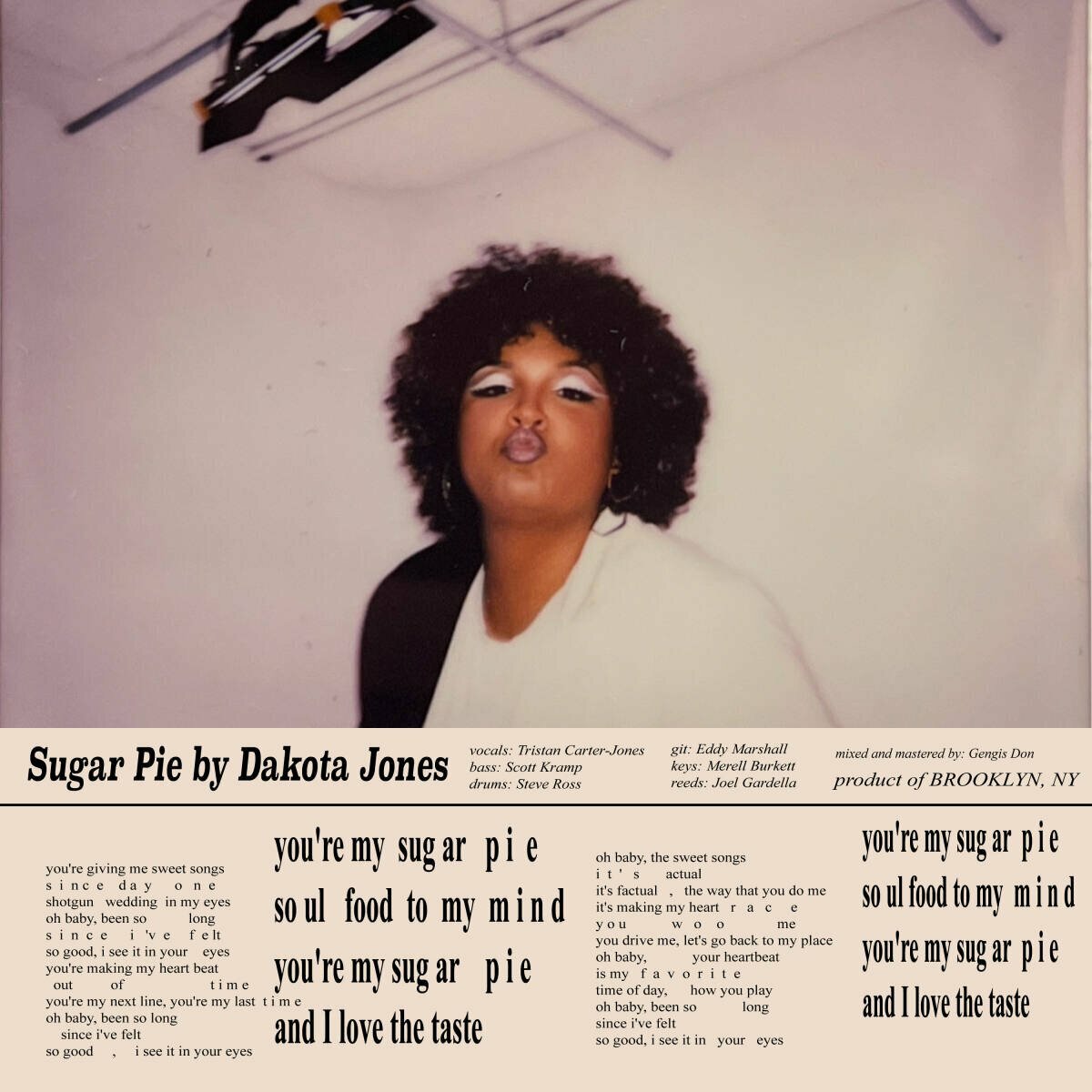Sugar Pie is the first new music from up and coming funk four-piece, Dakota Jones, since their much-loved debut album Black Light caused a stir in the summer of 2021. Fans will recognise lead singer Tristan Carter-Jones’ warm, soulful tones and r&b-infused funk sound, but something has changed…The funk is dirtier, the vocals are sultrier. It’s got grit, but there’s also a sweetness at play.
Comprised of Carter-Jones on vocals, Scott Jet Kramp on bass, Steve Ross on drums, and Eddy Marshall on the guitar, the Brooklyn four-piece have moulded their sound into something at once commanding and vulnerable, spontaneous and deliberate, familiar and refreshing.
In this Emerging Headliner interview powered by JBL, The band’s Tristan Carter-Jones and Scott Jet Kramp talk songwriting, muses, not being boxed into a specific genre, and new single, Sugar Pie:
How does it feel to have new single, Sugar Pie finally released?
Tristan: It feels really good. It's been a long time coming – over a year or more since we released our last record! It feels good to put new music out in the world. It's been a labour of love for quite some time.
You’ve been together as a band for around eight years. How did you meet; are you all from New York?
Scott: We're all born in New Jersey, but we migrated to New York in our late teens.
Tristan: I have known the drummer, Steve since I was about eight years old – we went to elementary school together. When he moved to New York City, I was already in New York – I'd studied at New York University and I'd been living there for a few years. He wanted to start jamming and playing drums for fun and he asked me to come and sing with him and another guitarist.
I immediately said, ‘Absolutely no, I'm not going to do that’. I was really terrified of singing in front of people and I didn't even want to sing covers with them. But they kept badgering me and eventually I sang at a couple of practices.
Scott is best friends with our former guitarist, and he was pulled in to play bass. One day, we ended up writing a song together instead of playing covers like we usually do. From that moment, everything clicked and we realised this is what we were supposed to be doing. We kept on going and didn't stop!




